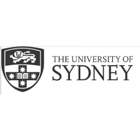- News and articles
- Find usIDP AustraliaIDP BahrainIDP BangladeshIDP CambodiaIDP CanadaIDP ChinaIDP EgyptIDP GhanaIDP Hong KongIDP IndiaIDP IndonesiaIDP IranIDP JordanIDP KenyaIDP KoreaIDP KuwaitIDP LebanonIDP MalaysiaIDP MauritiusIDP Middle EastIDP NepalIDP New ZealandIDP NigeriaIDP OmanIDP PakistanIDP PhilippinesIDP Saudi ArabiaIDP SingaporeIDP Sri LankaIDP Taiwan, ChinaIDP ThailandIDP TurkeyIDP UAEIDP VietnamIDP Corporate
- Social
- English
- Where we operate
- Courses
- Scholarships
- IELTS
- About IDP
- Student Essentials
- News and articles
- Find us
- Find us
- Find nearest IDP offices
- IDP Australia
- IDP Bahrain
- IDP Bangladesh
- IDP Cambodia
- IDP Canada
- IDP China
- IDP Egypt
- IDP Ghana
- IDP Hong Kong
- IDP India
- IDP Indonesia
- IDP Iran
- IDP Jordan
- IDP Kenya
- IDP Korea
- IDP Kuwait
- IDP Lebanon
- IDP Malaysia
- IDP Mauritius
- IDP Middle East
- IDP Nepal
- IDP New Zealand
- IDP Nigeria
- IDP Oman
- IDP Pakistan
- IDP Philippines
- IDP Saudi Arabia
- IDP Singapore
- IDP Sri Lanka
- IDP Taiwan, China
- IDP Thailand
- IDP Turkey
- IDP UAE
- IDP Vietnam
- IDP Corporate
- Social
- Language Switcher
- IDP Education /
- Colleges and Universities /
- Australia /
- The University of Sydney /
- Bachelor of Science and Mas...


Location
Australia
Qualification
Dual Degree
Fees
AUD56000
(2025)
Duration
5 Year(s)
Next intake
19 February 2026
Entry Score
7.0
IELTSCourse info
Mathematics is powerful, beautiful and diverse. It is a language, a tool for analysis and prediction, and a way of thinking about the world. At 1000 and 2000 level, this major equips students with the foundational ideas of mathematics: abstract algebra, vector calculus and calculus of several variables, as well as formal proof and analysis. At 3000 level and beyond, you will have a choice from a wide range of electives in both pure and applied areas of mathematics, including number theory, dynamical systems, geometry, topology and mathematical computing. The range of units available has been designed to cater for you - whether you intend to become a professional mathematician or if your main interests lie in other areas.
Graduates with mathematical skills are in demand in many areas, especially in business associated with financial services and information technology. They are needed in almost all scientific, medical, technological and industrial research. With a major in mathematics, you could be employed in a wide range of organisations to interpret information and make forecasts and decisions. Statisticians and mathematicians can be found in major corporations and in the public sector, where their skills are essential for policy planning. Secondary school mathematics teaching is also a high demand area for graduates. Even in areas where specific mathematical knowledge is not directly relevant, mathematics and statistics graduates are highly valued by many employers for their mental discipline and thoroughness.
- Scholarships View all scholarships
- Internships
Course fees are indicative and should be used as a guide. to get an accurate price.
Duration: 5 Year(s)
Fees: AUD56000
| Intake | Location |
|---|---|
| Semester 1 (February), 2026 | THE UNIVERSITY OF SYDNEY |
| Semester 1 (February), 2025 | THE UNIVERSITY OF SYDNEY |
Entry requirements for The University of Sydney
IELTS score A minimum result of 7.0 overall and a minimum result of 6.5 in each band
TOEFL - IBT score A minimum result of 96 overall including a minimum result of 20 in Reading, Listening and Speaking and 22 in Writing
A secondary education qualification such as the NSW Higher School Certificate (including national and international equivalents), OR approved higher education study, including approved preparation courses.
Application Deadline
The application deadline isn't available Speak to an IDP counsellor for more detailed information
Further information
If you aren't eligible for the above entry requirements, you might ant to explore pathway options at The University of Sydney. If you want to find out more, speak to our counsellors.
THE World Ranking
61st / 1250
THE World RankingWhat our students think
We’ve haven’t received any reviews for this institution yet.
Recommended for you
- Short Course / Professional Development
- Online , Australia
- Next intake:06/2025
- AUD1437 (2025)
- Short Course / Professional Development
- Online , Australia
- Next intake:10/2025
- AUD1581 (2025)
- THE World Ranking:1201
- Bachelor Degree
- Perth , Australia
- Next intake:07/2025
- Entry Score: IELTS 6.0
- AUD15008 (2025)
- THE World Ranking:401
- Bachelor Degree
- ROBINA , Australia
- Next intake:09/2025
- Entry Score: IELTS 6.5
- AUD23960 (2025)
- THE World Ranking:601
- Bachelor Degree
- SIPPY DOWNS , Australia
- Next intake:07/2025
- Entry Score: IELTS 6.0
- AUD24800 (2025)
- THE World Ranking:601
- Dual Degree
- SIPPY DOWNS , Australia
- Next intake:07/2025
- Entry Score: IELTS 6.0
- AUD25000 (2025)
- THE World Ranking:601
- Dual Degree
- PETRIE , Australia
- Next intake:07/2025
- Entry Score: IELTS 6.0
- AUD26750 (2025)
- THE World Ranking:601
- Dual Degree
- PETRIE , Australia
- Next intake:07/2025
- Entry Score: IELTS 6.0
- AUD26750 (2025)
Your action plan
Step 1
Shortlist your courses
Choose the best three courses you’re most likely to pursue.
Step 2
Check your eligibility
Get an instant in-principle offer for courses with the IDP FastLane tag.
Step 3
Apply through IDP Live
Fill out the form once and use it to apply to multiple courses.
How does IDP FastLane work?
With the FastLane 'Offer in Principle', you'll know in minutes if you'll be accepted!
Select an institution and course
Create your academic profile
Submit your application for an 'Offer in Principle'
Your chosen institution(s) will send you a decision in minutes!
Get ready to apply with an expert counsellor




